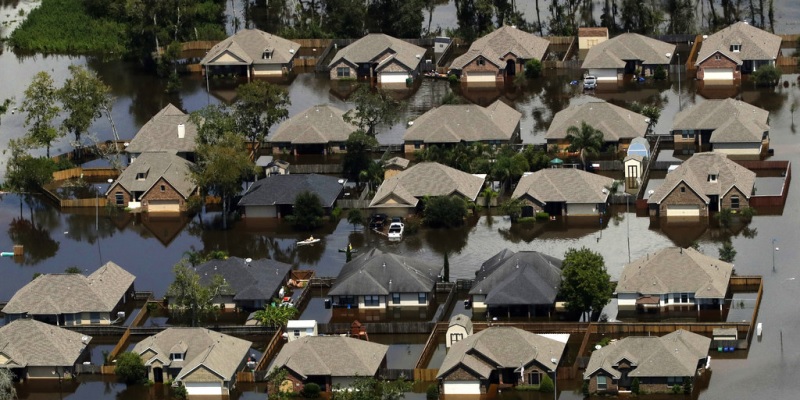Economic growth depends on boring things we rarely think about. Property insurance, for example.
Life is full of risks that can strike anyone but probably won’t strike everyone—at least not at the same time. Houses catch fire. Tornadoes and hurricanes strike. Having many people contribute small amounts protects the unlucky victims from devastating loss.
This certainty we won’t face devastating financial loss makes everyone happier and more productive. But insurance is possible only if the insurer knows the odds. Otherwise, it just doesn’t work—for either insurers or customers.
This is a growing problem in homeowner’s insurance. And since home is the largest asset for most American households, it’s an economic problem… for everyone.
Weird Things
You may have noticed this summer was unusually hot. And yes, summers are always hot. Having lived in Texas most of my life, I know heat. This year felt different. Lots of data confirms it, too.
In fact, some places below the equator where it is winter, not summer, also had record heat. Villamontes, Bolivia, reached 113F in August, the hottest winter temperature ever observed in the southern hemisphere.
Clearly, weird stuff is happening. And hot weather is only the start.
Warmer air holds more moisture, which leads to droughts as less water stays in the soil. Dry vegetation then becomes fire prone. And all that water floating around eventually becomes rain somewhere, often heavy enough to cause floods like those in Greece and Libya.
The result is a growing number of weather-related disasters. Here’s a map showing 24 major US disasters in the first 9 months of 2023. And this is only the billion-dollar events; many smaller ones aren’t shown.
Climate change seems to be making these events more frequent and/or severe, but it’s not the only factor.
Home insurers are painfully aware of all this. And after several years of higher claims, they’re raising rates to cover the costs. But that doesn’t always work. In Florida, the industry as a whole hasn’t made a profit since 2016, despite multiple rate increases. Some large insurers have pulled out of the state. Others may follow them.
That leaves many Florida homeowners no choice but to get insurance from the state-run last resort insurer, called Citizen’s Property Insurance Corp. It is now Florida’s largest home insurer yet lacks the financial reserves a private insurer would have—and in a big disaster might leave Florida taxpayers with a giant bill.
Similar things are happening in other states, including California and Louisiana. State laws that try to keep rates low can backfire by making insurance available only through the last-resort public options. In most states, they’re required to charge above-market rates.
Nothing requires insurers to stay in a particular state. If they find it’s impossible to operate profitably there, their best bet is to leave.
The problem is creeping upstream, too, as reinsurers—who sell excess-loss coverage to retail insurers—raise their own rates or reduce coverage.
Nonetheless, this isn’t just bureaucratic overreach. California and Florida have ideologically opposite leadership and neither has found an answer. Nor is it only a US problem; Australia has similar insurance issues.
This is bigger than politics.
Insurance problems will only get worse until insurers get some confidence in their claim liability. The unprecedented weather events are making that impossible.
Where does it lead? Nowhere good.
Scarce Alternatives
The monthly mortgage payment is only one cost of homeownership. Lenders usually require home buyers to purchase suitable insurance coverage. It’s not optional.
What if the insurance is more than the mortgage payment? That’s already happening in some places. At some point those homes become unaffordable, no matter how low mortgage rates or property values drop.
The free market could solve this… by making homes in vulnerable areas so expensive only the very wealthy live there. But political reality won’t let that happen.
Alternatives are scarce. Insurance doesn’t work without a level of predictability Mother Nature is no longer willing to provide. Even if insurers could get some confidence, high projected claims might force even bigger rate increases.
One possible endgame: a nationalized home insurance program, transferring disaster risk to taxpayers. That’s not as crazy as it sounds; various federal agencies already bear most mortgage repayment risk. Adding insurance isn’t conceptually different. But the enormous costs sure wouldn’t help the debt outlook.
Another question: What happens to the property insurance industry if it’s impossible to sell insurance profitably? That’s a lot of jobs, and a significant part of the stock and bond markets.
This will get much worse before it gets better.
See you at the top,





